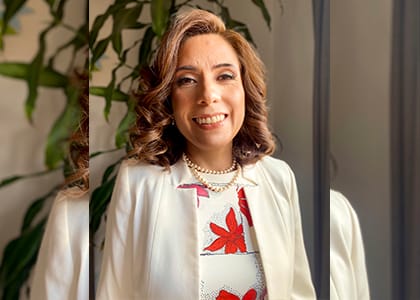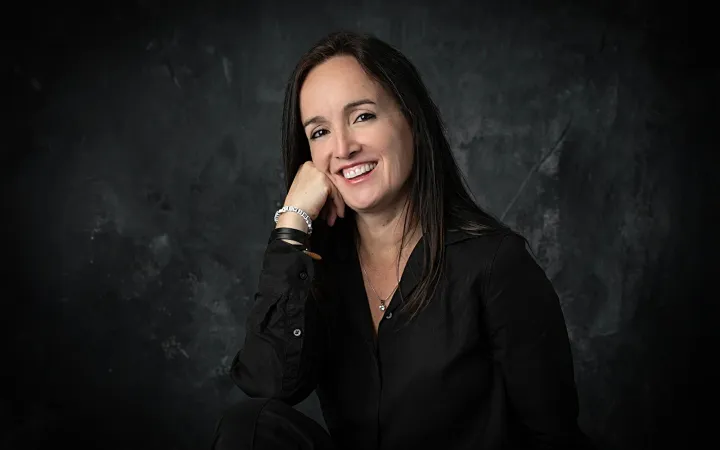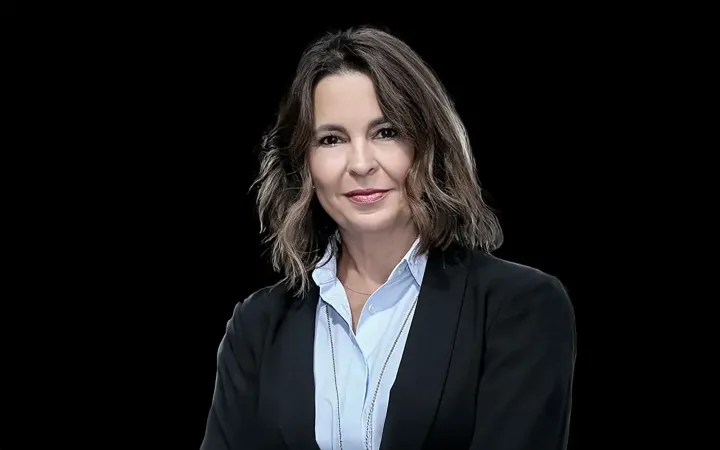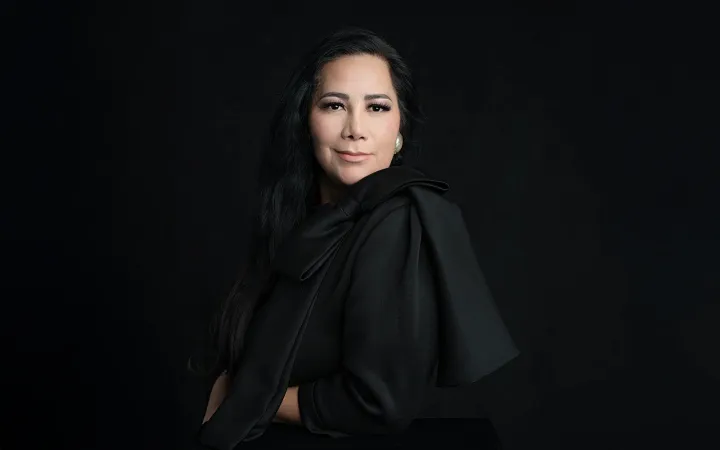
Por Mónica Maldonado Torres

Soy mamá de tres niños. Dos de ellos están diagnosticados dentro del espectro autista y desde que recibimos el diagnóstico han estado acompañados de muchas personas que los han apoyado para superar todos sus desafíos, como el lenguaje, que afortunadamente ya empieza a fluir después de algunos años, pero que en este caso jugó un papel fundamental.
Un día, uno de mis hijos neuro diversos tuvo un accidente en el kinder y se lastimó el pie. Inicialmente pensamos que era una torcedura así que optamos por ponerle una pomada pero el seguía diciendo “aquí” al tiempo que señalaba el tobillo afectado.
El recomendado
Al día siguiente decidimos llevarlo con el ortopedista que nos recomendó uno de los doctores con los que vamos habitualmente. El doctor en la consulta, al no tener respuesta verbal del niño a sus preguntas , decidió hacerle un ultrasonido y debido a que 15 días antes mi hijo había padecido de una gripa, dictaminó que tenía “artritis reactiva” y le mandó unas medicinas para la inflamación.
Pasada una semana, el pie del pequeño no mejoraba, al contrario, se veía más frágil y él caminaba con mayor dificultad, así que volvimos a preguntarle al doctor pero no pudo atendernos.
El conocido
Mi esposo decidió consultar por teléfono a un conocido, también ortopedista, y nos recomendó llevarlo a revisión. Lo llevé y ocurrió lo mismo, él hacía más preguntas, mi hijo no respondía y yo tenía que explicar lo que había sucedido. Le mandó radiografías, que no dejaban ver ninguna lesión, y me comentó que posiblemente era un esguince, así que nos recetó una tobillera flexible y más medicinas y nos puso cita para dos semanas despues.
Al paso de una semana mi hijo empeoró, así que el doctor nos recomendó llevarlo ahora con un “socio suyo”.
El socio
Al llegar con este doctor, que llamaremos el Doctor V, sucedió algo que nos cambiaría la vida durante los siguientes meses:
De una manera muy arrogante y poco empática, me dijo que él no necesitaba hacer pruebas, que con verlo ya sabía lo que tenía y que poco a poco iba a perder motricidad en todo el cuerpo. Tan solo por ver cómo se paraba del suelo con dificultad, lo diagnosticó: Síndrome de Guillain Barré o distrofia muscular de Duchenne, pues según él presentaba el signo de Gowers.
Al salir me entregó una receta con el diagnóstico y un tratamiento de 10 sesiones de fisioterapia. Y así, de la noche a la mañana, pasamos de una artritis reactiva a un esguince y luego una distrofia que iría empeorando cada día y que le ocasionaría eventualmente la muerte.
Como a cualquier familia que recibe un diagnóstico así, todo lo que me dijo el Doctor V. nos alarmó, nos molestó y sobre todo nos angustió por meses. Pero al instante comenzamos a investigar para buscar la opinión de otros especialistas.
Mientras tanto mi hijo seguía empeorando, trataba de caminar pero comenzaron a dolerle las rodillas y ya mejor se sentaba en el piso y se arrastraba sentado para llegar a donde quería, o pedía que lo cargáramos extendiendo los brazos y diciendo “cargar mamá”, “caminar no”, lloraba y se desesperaba de que no entendiéramos lo que realmente le estaba pasando.
El tradicional
Lo llevamos con su neuróloga, que lo conoce desde que tenía dos años, y al escuchar la experiencia nos comentó que era muy poco probable que tuviera alguna de esas enfermedades, pero nos dio la opción de hacerle varios estudios de sangre si es que queríamos descartar al cien por ciento estos diagnósticos. Lo hicimos, y también buscamos a otro ortopedista. Este último, al conocer la situación decidió enyesarle su pierna por dos semanas y mandarle un ultrasonido de rodilla que no arrojó ningún dato relevante, sin embargo nos advirtió que si presentaba fiebre tendría que llevarlo de inmediato a urgencias.
Cuando terminaron las dos semanas regresamos para retirar el yeso y el doctor nos dio una receta para ir a cinco y luego a diez sesiones de rehabilitación. Al inicio mi hijo no soportaba la terapia que consistía en colocarle aparatos que hacen que la pierna vibre; sus desafíos sensoriales le hacían muy complicado poder tolerarlo durante los 50 minutos que duraban las sesiones, sin embargo poco a poco lo superó.
Al terminar la rehabilitación regresamos con el ortopedista pues si bien mi hijo ya no presentaba dolor, todavía no podía caminar bien, cojeaba y se cansaba muy rápido, y cuando se sentaba en el piso y le pedían levantarse lo hacía todavía con movimientos similares a la maniobra de Gowers, ahora este médico nos remitió de regreso con la neuróloga para una revisión ante un posible problema de distrofia o neurodesarrollo. Su trabajo con nosotros había terminado.
El equipo
Nuestra neuróloga, que no podía creer que nos hubieran dado un diagnóstico así en primera instancia, se sorprendió al saber que el último ortopedista nos mandara de regreso con ella por la misma sospecha. Lo que ella notaba era una baja en el tono muscular que debía atenderse desde otro ángulo. Y nuestras terapeutas de lenguaje y de integración sensorial -que habían seguido día a día con nosotros la evolución del caso-, estaban molestas junto con nosotros por cómo se había complicado todo esto. Una de ellas nos recomendó consultar a una nutrióloga y a una terapeuta experta en rehabilitación de niños en el espectro autista.
Estas excepcionales especialistas nos ayudaron a entender lo que había pasado: mi hijo había sufrido un esguince, que se volvió crónico por ser mal atendido desde el inicio, y además se había provocado una baja de tono muscular porque tuvo inmovilizada la pierna. El resultado: debilidad y problemas de propiocepción que tenían que ser atendidos desde el punto de vista de integración sensorial.
Comenzamos una dieta especial y una serie de sesiones que le dieron sus terapeutas con mucha paciencia, mucho ánimo y amor. Mi hijo logró recuperarse por completo después de varios meses de haberse lastimado.
La realidad
En retrospectiva analizo lo que sucedió y lamento mucho la falta de sensibilidad de los doctores que visitamos, y sobre todo me molesta la falta de profesionalismo del Doctor V, que se aventuró a dar un diagnóstico simplemente porque no sabía qué hacer.
Muchas veces son estos mismos doctores los que levantan la voz y se manifiestan por que en las escuelas, en los restaurantes, en el trabajo se necesita más inclusión y respeto a la neurodiversidad, pero pasan por alto que ellos mismos, en sus propias disciplinas, podrían estar siendo demasiado fríos y poco empáticos, tratando una consulta tras otra con la misma medida, en lugar de poner toda su agudeza y su corazón en tratar de entender a un niño autista de 6 años que intenta por todos su medios decir “me duele aquí”.
La postura de Doctoralia
Tiempo después de lo sucedido, cuando ya teníamos la certeza de que mi hijo no tenía ninguna de las enfermedades que nos habían diagnosticado, mi esposo ingresó una reseña en el perfil del Doctor V. en Doctoralia con el objetivo de advertir a otros padres sobre el poco profesionalismo de este individuo, que había confundido un esguince con el Síndrome de Guillain Barré.
Sin embargo, la respuesta que tuvo a su reseña no fue la que esperaba. A diferencia de cuando ingresas una opinión positiva que se publica de inmediato, en esta ocasión la respuesta fue que iban a revisar su comentario. Después le mandaron otro mensaje, diciendo que necesitaba comprobar que la cita se había realizado vía dicha aplicación para poder publicarla (cosa que no piden cuando es positiva) y finalmente se la rechazaron. Era de esperarse una respuesta así de una empresa cuyo negocio está en mantener una buena relación con los doctores.
En fin, como mamá de dos niños en el espectro, me di cuenta que no hay que creer todo lo que se dice de un “especialista”, más vale acudir a aquellos que sean sinceros, humildes, que se atrevan a decir “no sé” y te acompañen en el camino.
Y por otro lado nunca dejar de confiar en tus hijos, en su capacidad para sobreponerse a todas sus adversidades y desafíos. Como mamás y papás, debemos acompañarlos todos los días y ser sus embajadores, hasta el final, pues todavía hay mucho que recorrer en este país en lo que respecta a inclusión y neurodiversidad.
*Mónica es Actuaria egresada de la Universidad Anáhuac, cuenta con una Maestría en Seguros y Gerencia de Riesgos por la Universidad Pontificia de Salamanca en Madrid y con amplia experiencia en gestión de riesgos para eventos masivos de entretenimiento. Es mamá de tres niños y lucha incansablemente por ampliar las oportunidades de inclusión de niños con desafíos en el neurodesarrollo; así como el reconocimiento y el respeto a la neurodiversidad.
Las opiniones expresadas son responsabilidad de sus autoras y son absolutamente independientes a la postura y línea editorial de Opinión 51.






Comments ()